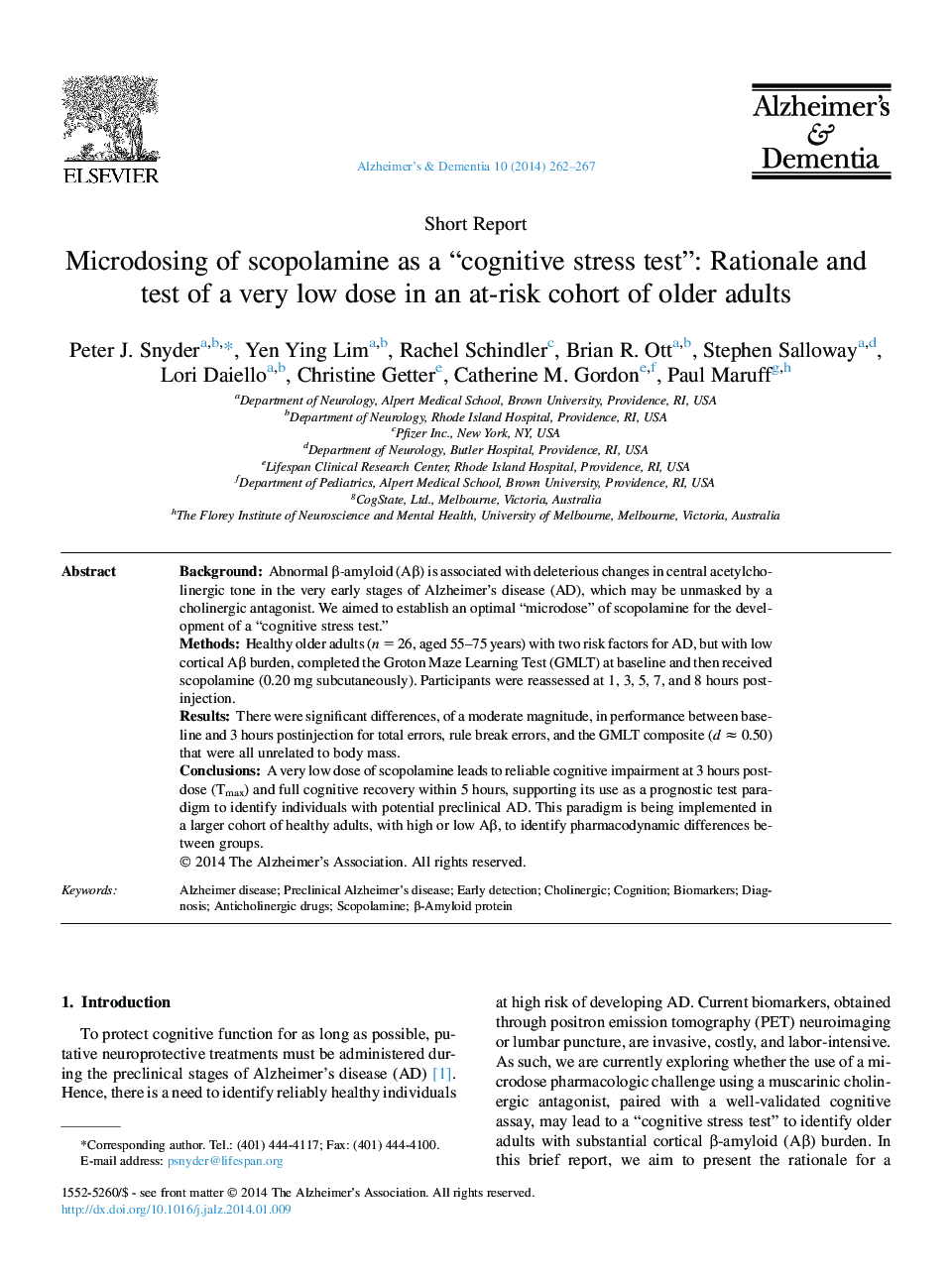| Article ID | Journal | Published Year | Pages | File Type |
|---|---|---|---|---|
| 5622976 | Alzheimer's & Dementia | 2014 | 6 Pages |
BackgroundAbnormal β-amyloid (Aβ) is associated with deleterious changes in central acetylcholinergic tone in the very early stages of Alzheimer's disease (AD), which may be unmasked by a cholinergic antagonist. We aimed to establish an optimal “microdose” of scopolamine for the development of a “cognitive stress test.”MethodsHealthy older adults (n = 26, aged 55-75 years) with two risk factors for AD, but with low cortical Aβ burden, completed the Groton Maze Learning Test (GMLT) at baseline and then received scopolamine (0.20 mg subcutaneously). Participants were reassessed at 1, 3, 5, 7, and 8 hours postinjection.ResultsThere were significant differences, of a moderate magnitude, in performance between baseline and 3 hours postinjection for total errors, rule break errors, and the GMLT composite (d â 0.50) that were all unrelated to body mass.ConclusionsA very low dose of scopolamine leads to reliable cognitive impairment at 3 hours postdose (Tmax) and full cognitive recovery within 5 hours, supporting its use as a prognostic test paradigm to identify individuals with potential preclinical AD. This paradigm is being implemented in a larger cohort of healthy adults, with high or low Aβ, to identify pharmacodynamic differences between groups.
